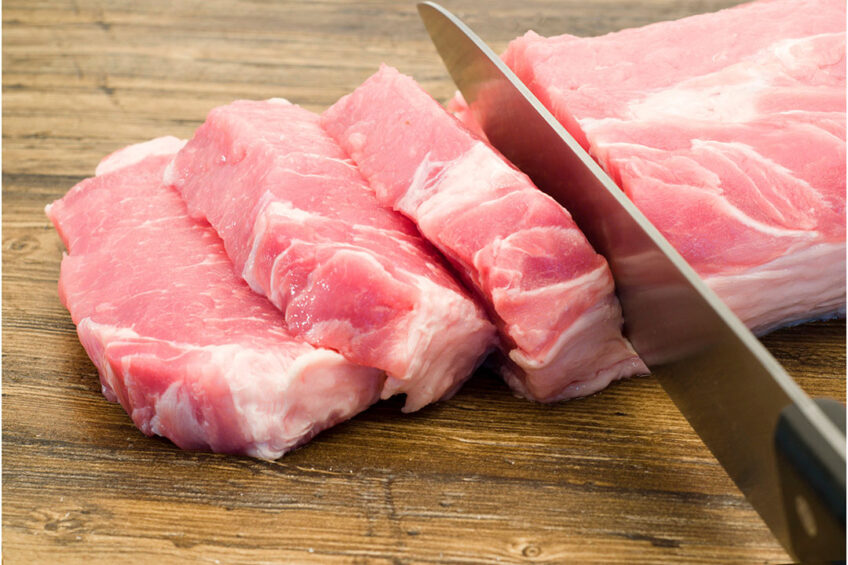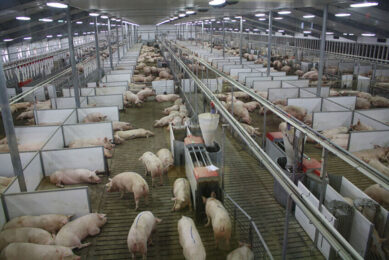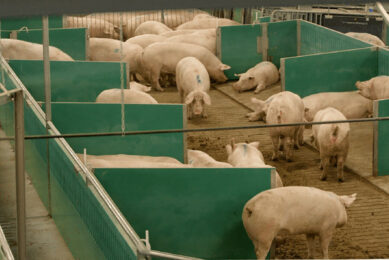Canada, the UK and Prop 12: compliance and countermeasures

Although Proposition 12 is US legislation based in California, it also affects the Canadian pork industry, which exports large amounts into the US.
Prop 12 goes into effect January 1, 2024 and requires that any pork meat sold within the state of California must meet house requirements. This basically provides more space per pig. A couple of other states such as Massachusetts have also moved forward with regulations similar to Prop 12.
The US Supreme Court upheld Prop 12 in May of this year. In October, 2 Republican senators introduced a bill opposing Prop 12, supported by the US’ National Pork Producers Council (NPPC). Other Republican senators are against the bill.
Certified and ready for Prop 12 implementation
On November 8, Canadian pork firm ‘duBreton’ announced it is one of the first companies to be certified and ready for the implementation of Prop 12. The firm has been raising crate-free pigs since 2003, and antibiotic-free pigs for over 20 years.
CEO Vincent Breton said, “Thanks to our US Department of Agriculture Organic, Certified Humane Raised and Handled certifications and GAP 5-step certifications, we do not only comply with but greatly surpass Prop 12 requirements.”
How to achieve Prop 12 certification
The University of Minesota Extension released an interview with Dr Cara Haden from Pipestone Veterinary Services on November 14. This outlined details on how to achieve Prop 12 certification. She has been involved in several certifications so far. Haden is known as the ‘Pig Vet’ on TikTok, and posts videos about pig care and management.
Meanwhile, on November 20, the US Department of Agriculture announced it would add a non-carcass merit premium for hogs raised in compliance Prop 12 to the National Weekly Direct Swine Non-Carcass Merit Premium report. The USDA states that “this addition will provide pork industry stakeholders with the information necessary to make informed production and marketing decisions.”
Another major Canadian pork producer, Maple Leaf Foods, has already transitioned to open housing for gestating sows. Some US firms (Tyson Foods and Hormel) agreed over 2 years ago to comply with Prop 12. Also, several farm equipment companies are producing Prop 12 compliant housing options.
Trade concerns
The Canadian Pork Council (CPC) has recently stated that the way the law restricts sales of pork in California is not allowed under existing trade regulations. CPC executive director Stephen Heckbert recently pointed to details in World Trade Organisation regulations, as well as specifics in the US-Mexico-Canada Agreement that do not permit the creation of ‘non-trade tariff’ trade barriers such as those that exist in Prop 12. He also notes that the situation could advance all the way to an international trade court proceeding.
UK becomes Prop 12 ready
As of November 21 in the UK, pork producers under the Red Tractor Certification scheme can now be certified for shipping Prop 12-compliant pork to California through the international certification body NSF.
Jim Moseley, Red Tractor CEO, says his organisation has been working closely on this with the California Department of Food and Agriculture (CDFA) and NSF. He and his team explored all the different options for being Prop 12 compliant. Prop 12 however requires an independent certification body such as NSF to be involved.
Moseley is hopeful this “can be the start of a productive and ongoing new trading relationship. We are encouraging the CDFA to visit the UK so that they can see first-hand the high standards our Red Tractor farmers work to.”
The Pig Progress Newsletter
Sign up for our newsletter and receive all our need-to-know content three times a week.









